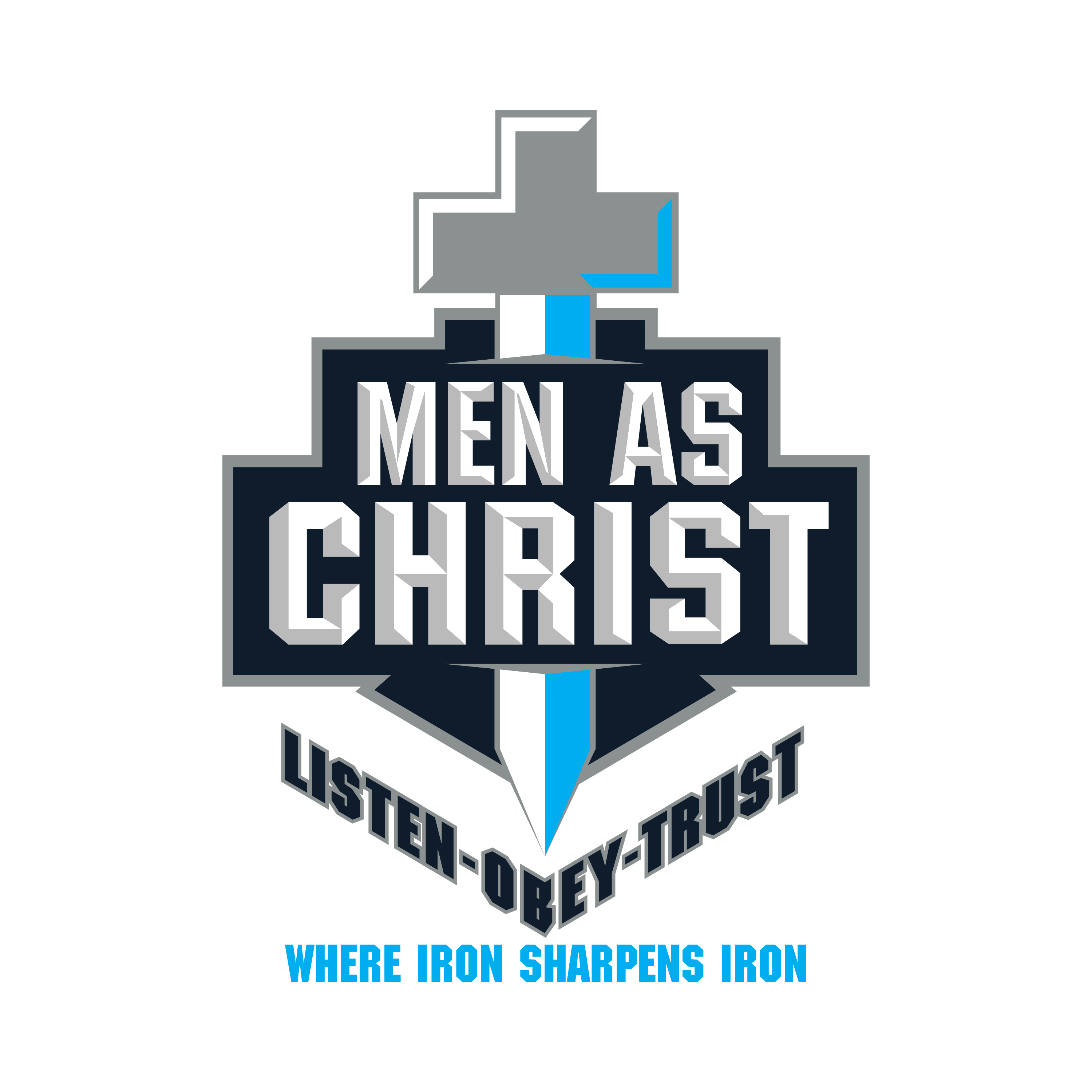Men As Christ
Where Iron Sharpens Iron / Proverbs 27:17
Sibling Rivalry

Luke 15:1-3, 11-32:
Tax collectors and sinners were all drawing near to listen to Jesus, but the Pharisees and scribes began to complain, saying, “This man welcomes sinners and eats with them.” So to them Jesus addressed this parable: “A man had two sons, and the younger son said to his father, ‘Father give me the share of your estate that should come to me.’ So the father divided the property between them. After a few days, the younger son collected all his belongings and set off to a distant country where he squandered his inheritance on a life of dissipation. When he had freely spent everything, a severe famine struck that country, and he found himself in dire need. So he hired himself out to one of the local citizens who sent him to his farm to tend the swine. And he longed to eat his fill of the pods on which the swine fed, but nobody gave him any. Coming to his senses he thought, ‘How many of my father’s hired workers have more than enough food to eat, but here am I, dying from hunger. I shall get up and go to my father and I shall say to him, “Father, I have sinned against heaven and against you. I no longer deserve to be called your son; treat me as you would treat one of your hired workers.”’ So he got up and went back to his father. While he was still a long way off, his father caught sight of him, and was filled with compassion. He ran to his son, embraced him and kissed him. His son said to him, ‘Father, I have sinned against heaven and against you; I no longer deserve to be called your son.’ But his father ordered his servants, ‘Quickly bring the finest robe and put it on him; put a ring on his finger and sandals on his feet. Take the fattened calf and slaughter it. Then let us celebrate with a feast, because this son of mine was dead, and has come to life again; he was lost, and has been found.’ Then the celebration began. Now the older son had been out in the field and, on his way back, as he neared the house, he heard the sound of music and dancing. He called one of the servants and asked what this might mean. The servant said to him, ‘Your brother has returned and your father has slaughtered the fattened calf because he has him back safe and sound.’ He became angry, and when he refused to enter the house, his father came out and pleaded with him. He said to his father in reply, ‘Look, all these years I served you and not once did I disobey your orders; yet you never gave me even a young goat to feast on with my friends. But when your son returns who swallowed up your property with prostitutes, for him you slaughter the fattened calf.’ He said to him, ‘My son, you are here with me always; everything I have is yours. But now we must celebrate and rejoice, because your brother was dead and has come to life again; he was lost and has been found.’”
Blog:
Most of the focus of the Parable of the Prodigal Son goes to the main character – “the” Prodigal Son. But the Obedient Son is too often an “after-thought” in the story. While all of us seem to identify with the Prodigal Son and/or the Father in the Parable, for many of us, we would be remiss if we didn’t see the similarities in how often we’re more like the Obedient Son in life. Instead of rejoicing in the Redemption and good fortunes of others, we, too, can often focus on ourselves in a wading pool of envy, greed, jealousy, pride, etc. We “look” at all the years that we “served Him” and “didn’t disobey Him” and can’t believe the second chances others are Granted by God. Too often, we forget that Jesus left His Eternal Throne in Heaven to come down to earth to save us from our sins. He didn’t have to, but, He, too, chose the difficult way and the narrow gate. He came as a dirt-poor infant who was born in an animal’s feeding trough while being hunted by the King of His very own people. He surrendered everything to be with us – including His very life while getting beaten, scourged, mocked, and nailed to die a sinner’s death on a splintery, wooden cross while suffocating to death. Maybe Jesus looks at us at times (as the self-proclaimed Obedient Sons and Daughters that we are) and says, like the Father in the Parable, “My Child, you are here with me always; everything I have is yours.” Maybe He is constantly reminding us how, “We must celebrate and rejoice, because your brother was dead and has come to life again; he was lost and has been found.” There are wonderful stories of people coming to Christ just before their deaths and, like the Parable of the Vineyard Workers (Matthew 20:1-16), we shouldn’t have contempt for those who come to the Wedding Feast of the Lamb later in the Celebration – we should just be Grateful that they made the Feast at all. So, as Believers, let us continue to see Jesus and ourselves in others and remember to identify, to some degree, with all of the characters in the Bible. While it gets uncomfortable at times to admit how we might have behaved like Judas Iscariot, Pontius Pilate, King Herod, or the Obedient Son, Jesus demands that we get “uncomfortable” with the world and to seek and find our “Comfort” in Him.


